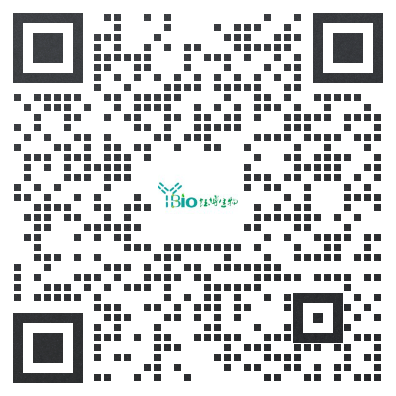
Anti-ABCG8/FITC Conjugated抗体
产品名称: Anti-ABCG8/FITC Conjugated抗体
英文名称: Anti-ABCG8/FITC
产品编号: YB--10149R-FITC
产品价格: null
产品产地: 中国/美国
品牌商标: Ybscience
更新时间: 2023-08-17T10:29:50
使用范围: 科研使用
上海钰博生物科技有限公司
- 联系人 : 陈环环
- 地址 : 上海市沪闵路6088号龙之梦大厦8楼806室
- 邮编 : 200612
- 所在区域 : 上海
- 电话 : 183****2235 点击查看
- 传真 : 点击查看
- 邮箱 : shybio@126.com
- 二维码 : 点击查看
Anti-ABCG8/FITC Conjugated抗体
| 产品编号 | YB-10149R-FITC |
| 英文名称 | Anti-ABCG8/FITC |
| 中文名称 | FITC标记的三磷酸腺苷结合转运蛋白G超家族成员8抗体 |
| 别 名 | ATP binding cassette sub family G (WHITE) member 8 (sterolin 2); ATP binding cassette sub family G member 8; MGC142217; Sterolin 2; STSL; ABCG8_HUMAN. |
| 规格价格 | 100ul/2980元 购买 大包装/询价 |
| 说 明 书 | 100ul |
| 研究领域 | |
| 抗体来源 | Rabbit |
| 克隆类型 | Polyclonal |
| 交叉反应 | Human, Mouse, Rat, Dog, Pig, Cow, Horse, Rabbit, |
| 产品应用 | ICC=1:50-200 IF=1:50-200 not yet tested in other applications. optimal dilutions/concentrations should be determined by the end user. |
| 分 子 量 | 76kDa |
| 细胞定位 | 细胞膜 |
| 性 状 | Lyophilized or Liquid |
| 浓 度 | 1mg/ml |
| 免 疫 原 | KLH conjugated synthetic peptide derived from human ABCG8 |
| 亚 型 | IgG |
| 纯化方法 | affinity purified by Protein A |
| 储 存 液 | 0.01M TBS(pH7.4) with 1% BSA, 0.03% Proclin300 and 50% Glycerol. |
| 保存条件 | Store at -20 °C for one year. Avoid repeated freeze/thaw cycles. The lyophilized antibody is stable at room temperature for at least one month and for greater than a year when kept at -20°C. When reconstituted in sterile pH 7.4 0.01M PBS or diluent of antibody the antibody is stable for at least two weeks at 2-4 °C. |
| 产品介绍 | background: The protein encoded by this gene is a member of the superfamily of ATP-binding cassette (ABC) transporters. ABC proteins transport various molecules across extra- and intra-cellular membranes. ABC genes are divided into seven distinct subfamilies (ABC1, MDR/TAP, MRP, ALD, OABP, GCN20, White). This protein is a member of the White subfamily. The protein encoded by this gene functions to exclude non-cholesterol sterol entry at the intestinal level, promote excretion of cholesterol and sterols into bile, and to facilitate transport of sterols back into the intestinal lumen. It is expressed in a tissue-specific manner in the liver, intestine, and gallbladder. This gene is tandemly arrayed on chromosome 2, in a head-to-head orientation with family member ABCG5. Mutations in this gene may contribute to sterol accumulation and atherosclerosis, and have been observed in patients with sitosterolemia. [provided by RefSeq, Jul 2008]. Function: Transporter that appears to play an indispensable role in the selective transport of the dietary cholesterol in and out of the enterocytes and in the selective sterol excretion by the liver into bile. Subunit: May form heterodimers with ABCG5 or be tightly coupled to ABCG5 along a pathway regulating diatery-sterol absorption and excretion. Subcellular Location: Membrane; Multi-pass membrane protein (Probable). Tissue Specificity: Strongly expressed in the liver, lower levels in the small intestine and colon. Detectable in a wide variety of human tissues. DISEASE: Genetic variations in ABCG8 can be associated with susceptibility to gallbladder disease type 4 (GBD4) [MIM:611465]. With an overall prevalence of 10-20%, gallstone disease (cholelithiasis) represents one of the most frequent and economically relevant health problems of industrialized countries. Defects in ABCG8 are a cause of sitosterolemia (STSL) [MIM:210250]; also known as phytosterolemia or shellfish sterolemia. It is a rare autosomal recessive disorder characterized by increased intestinal absorption of all sterols including cholesterol, plant and shellfish sterols, and decreased biliary excretion of dietary sterols into bile. Sitosterolemia patients have hypercholesterolemia, very high levels of plant sterols in the plasma, and frequently develop tendon and tuberous xanthomas, accelerated atherosclerosis and premature coronary artery disease. Similarity: Belongs to the ABC transporter superfamily. ABCG family. Eye pigment precursor importer (TC 3.A.1.204) subfamily. Contains 1 ABC transmembrane type-2 domain. Contains 1 ABC transporter domain. Database links: Entrez Gene: 64241 Human Omim: 605460 Human SwissProt: Q9H221 Human Unigene: 413931 Human Important Note: This product as supplied is intended for research use only, not for use in human, therapeutic or diagnostic applications |
